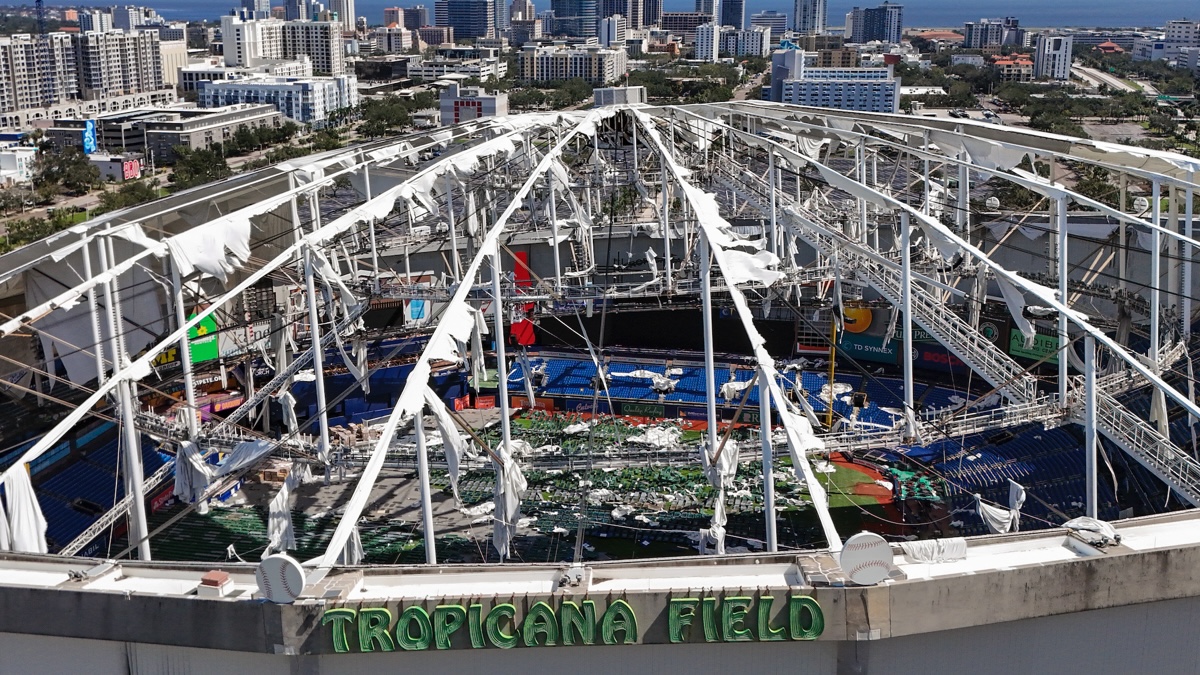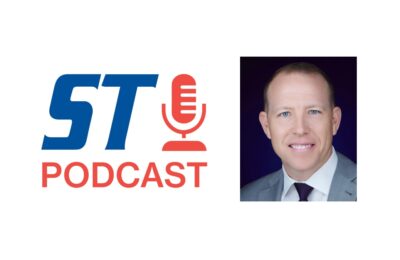
The Tampa Bay Rays have withdrawn from a $1.3 billion ballpark project, citing hurricanes and delays that likely will drive up the proposal’s cost.
The team issued a statement by principal owner Stuart Sternberg saying that “a series of events” in October, which included severe damage to the existing Tropicana Field and financing delays, led to what he called “this difficult decision.”
“After careful deliberation, we have concluded we cannot move forward with the new ballpark and development project at this moment,” Sternberg said.
Under their current contract with the city of St. Petersburg, the Rays would play three more seasons at their existing ballpark after it is repaired. Beyond that, the team’s future in the Tampa Bay area is uncertain, reported The Associated Press.
Displaced from the Trop in St. Petersburg, the Rays are set to play this season’s home games across Tampa Bay at the New York Yankees’ spring training home, 11,000-seat Steinbrenner Field. Meanwhile, repairs are envisioned to the Trop that would have it ready for the 2026 season.
The Rays in January said it would support a $55.7 million city plan to repair hurricane-shredded Tropicana Field in time for the 2026 season opener. Hurricane Milton tore the Trop’s fabric roof to pieces when it came ashore October 9, causing water and other damage to interior parts of the now-exposed ballpark. The Rays’ home since 1998, the fabric roof over Tropicana Field was ripped to shreds after Hurricane Milton came ashore, bringing wind gusts exceeding 100 mph and flooding parts of Florida.
At about 11,000 seats, Steinbrenner Field is the largest of the spring training sites in Florida. It’s not the first time a Major League Baseball team will host regular season games in a spring training stadium. The Toronto Blue Jays played part of the 2021 season at their facility in Dunedin because of Canadian government restrictions during the pandemic.






























 Copyright © 2025 by Northstar Travel Media LLC. All Rights Reserved. 301 Route 17 N, Suite 1150, Rutherford, NJ 07070 USA | Telephone: (201) 902-2000
Copyright © 2025 by Northstar Travel Media LLC. All Rights Reserved. 301 Route 17 N, Suite 1150, Rutherford, NJ 07070 USA | Telephone: (201) 902-2000